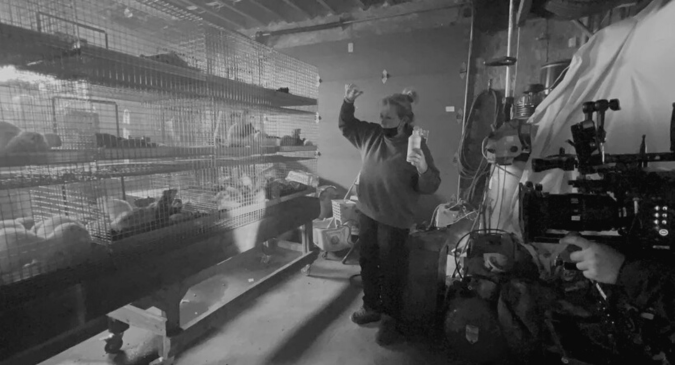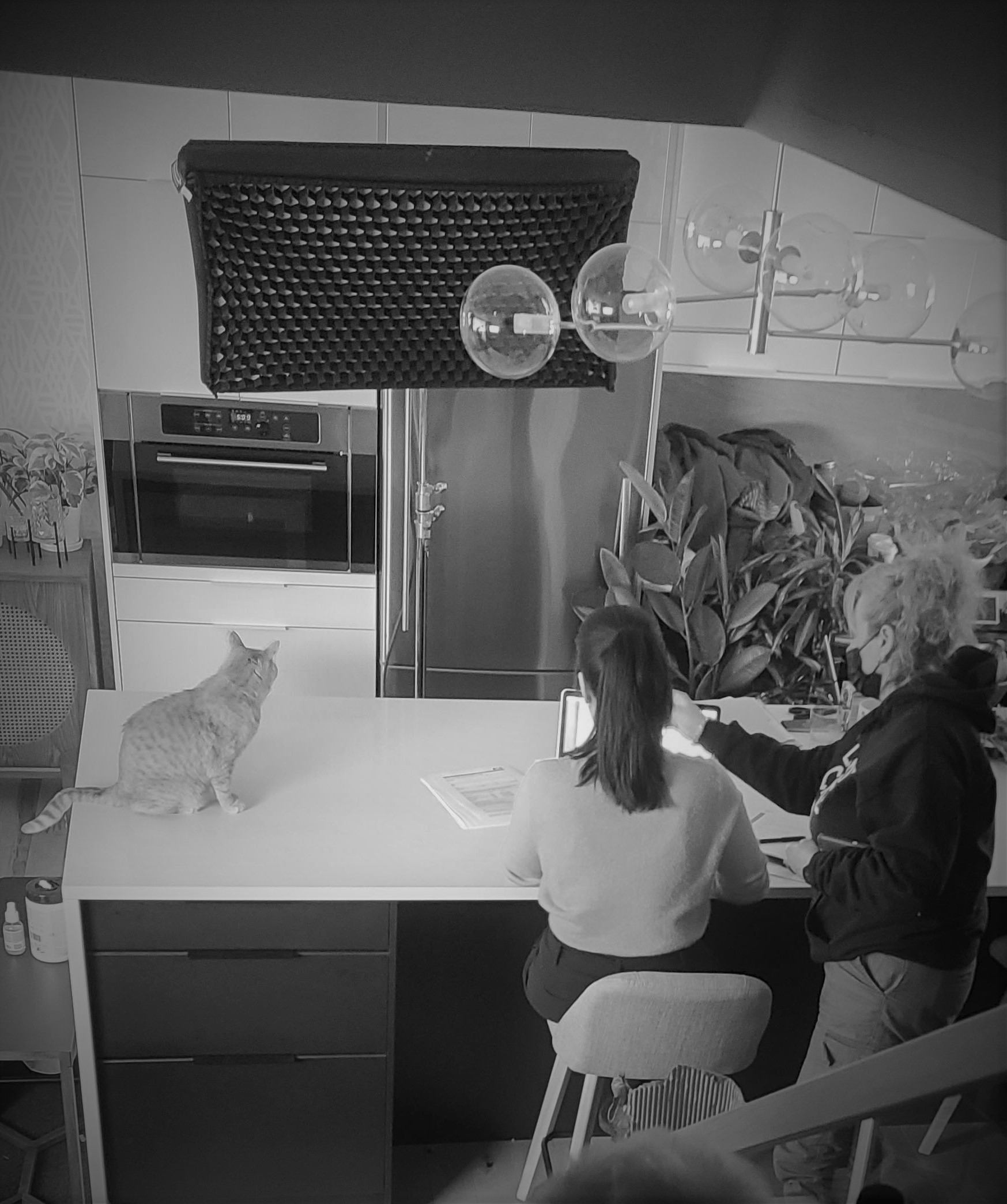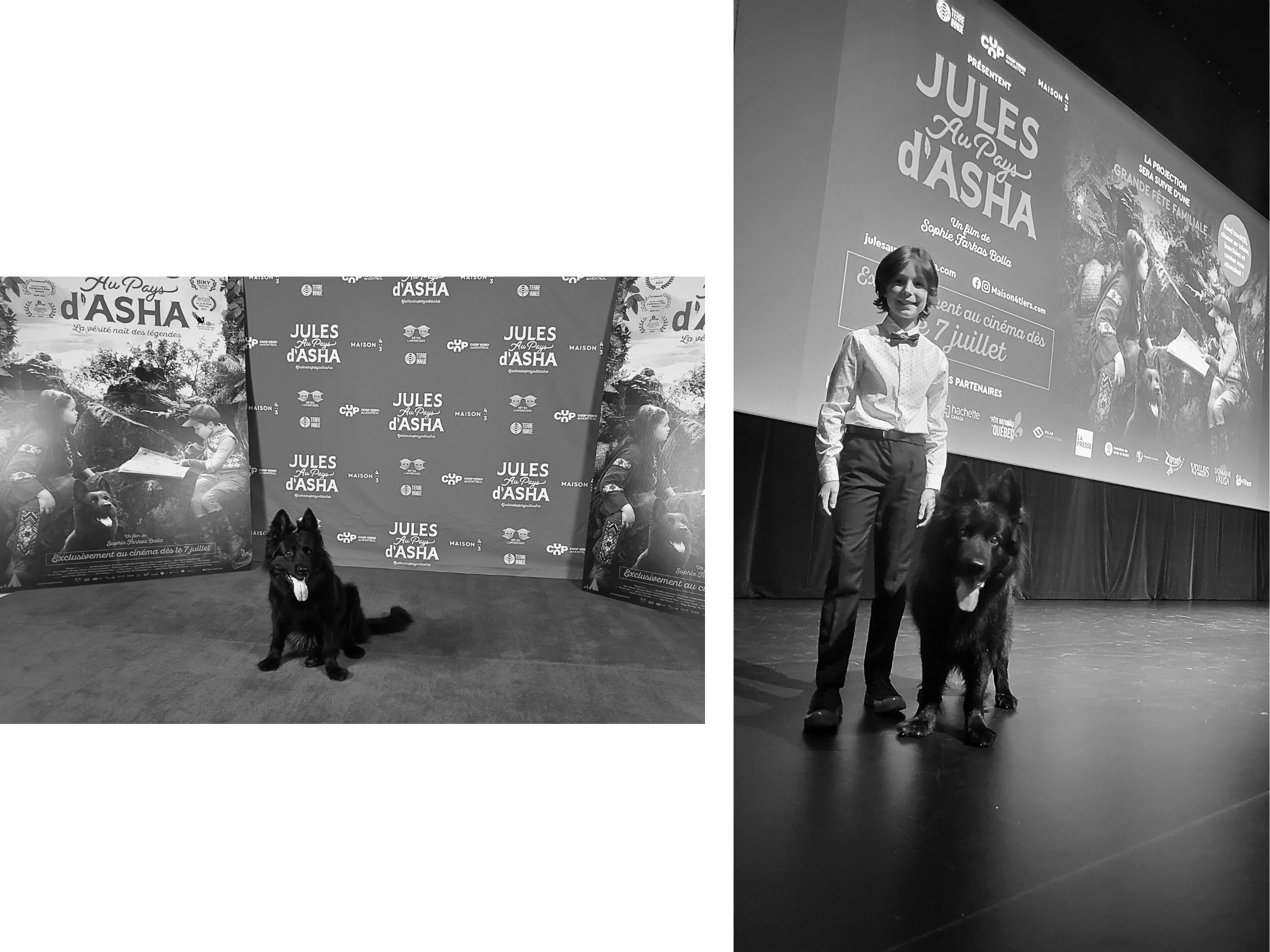Sophie Longpré - Animal Coordinator & Trainer
Publié le August 9, 2023

Translated from French
WHAT IS YOUR JOB? HOW WOULD YOU DESCRIBE YOUR WORK?
As an Animal Actor Coordinator and Trainer , I help train animals in film and television productions to go through the motions the director wants. I work with non-exotic animals such as dogs, cats, horses, pigs, chickens, etc. Training these animals requires a great deal of patience and preparation before the shoot. Through daily training sessions, the animal learns to trust me, obey me without looking at me, and feel at ease in front of the camera in the presence of strangers.
There’s a fine line between my professional and personal lives − the two are intimately connected. As you can imagine, my work doesn’t stop when I leave the set; it continues after the cameras stop rolling. I have to take care of my animals at home as well as at work: feed them, clean them, walk them, train them and, above all, love them. To do this job, you need to have a sincere love and deep passion for animals.
I work closely with the director. My role is to help bring the director’s vision and expectations of the animals to the screen. But as important as the director’s needs are, my first responsibility is to ensure the animals’ health and safety on set. If I notice that an animal is feeling uncomfortable after a while, or is exposed to danger, I immediately remove it from the set. The animal’s welfare always comes first!
WHAT PART OF THE JOB DO YOU LIKE THE BEST?
I like to tackle big challenges. For me, there’s nothing more stimulating than training animal actors. It involves far more than giving commands such as “sit” or “stay.” The animal has to obey me from a distance, without it showing on the screen. It’s more complicated than you might think. The animal has to learn to follow my spoken commands without looking at me. There are two schools of thought on how to give an animal instructions during a shoot: through verbal commands or discreet cues. I much prefer verbal commands. Sometimes, however, I have no choice but to use non-verbal cues. Just like human actors, the animals are playing a role. Their real names are not used on camera, which they may find confusing. That’s when I use the second method, so as to avoid confusion.
In my job, I have to constantly adjust my techniques and my instructions to the film crew depending on the animal, unforeseen circumstances and the on-set environment. It all pays off in the end when I see the final result for the first time. That’s the part that motivates me the most.

WHAT WAS YOUR FAVOURITE PROJECT?
Every time a production I’ve worked hard on comes to an end, it becomes my favourite. When I will start a similar project in a few weeks , it will then become my favourite once completed. Each project is in turn the best experience of my career.
My latest project was the horror film Witchboard, directed by Chuck Russell. I can’t reveal too many details, as it’s still in post-production. All I can say is that my cat was absolutely outstanding in the movie. It pulled off several stunts that everyone thought were impossible. The director and the special effects coordinator were speechless. You’ll have to wait until the movie comes out to see it!
IS THERE AN ANECDOTE ABOUT YOUR WORK THAT COMES TO MIND?
One of my animal actors and I were recently invited to walk the red carpet for the first time. It was for the feature film Adventures in the Land of Asha, in which my dog Misha has an important role. I was really touched by the invitation, as animals are often forgotten once the project is over. The work of movie animals is rarely recognized but they are real actors and their role in the creative process is just as important as that of the other actors. In my opinion, the talent and work of animal actors should be recognized at award ceremonies such as the Oscars.

HOW DO YOU SEE THE FUTURE OF THE PROFESSION?
I often ask myself this question. I really can’t say what the future has in store for my line of work. It’s difficult to define the type of person who’s cut out for this unusual, little-known profession. You need to be self-taught, versatile, and have a thorough understanding of animals and how movie sets work. As I said, my work never stops. Living beings depend on me and I have to be attentive to their needs at all times, both on set and at home. It’s one thing to love animals, it’s quite another to devote almost all your time to raising and training them. So there aren’t too many candidates in the pool today.
On a more positive note, I sometimes give training sessions to pass on my knowledge of animal training to people who are interested. Who knows? Maybe that’s a step in the right direction.
